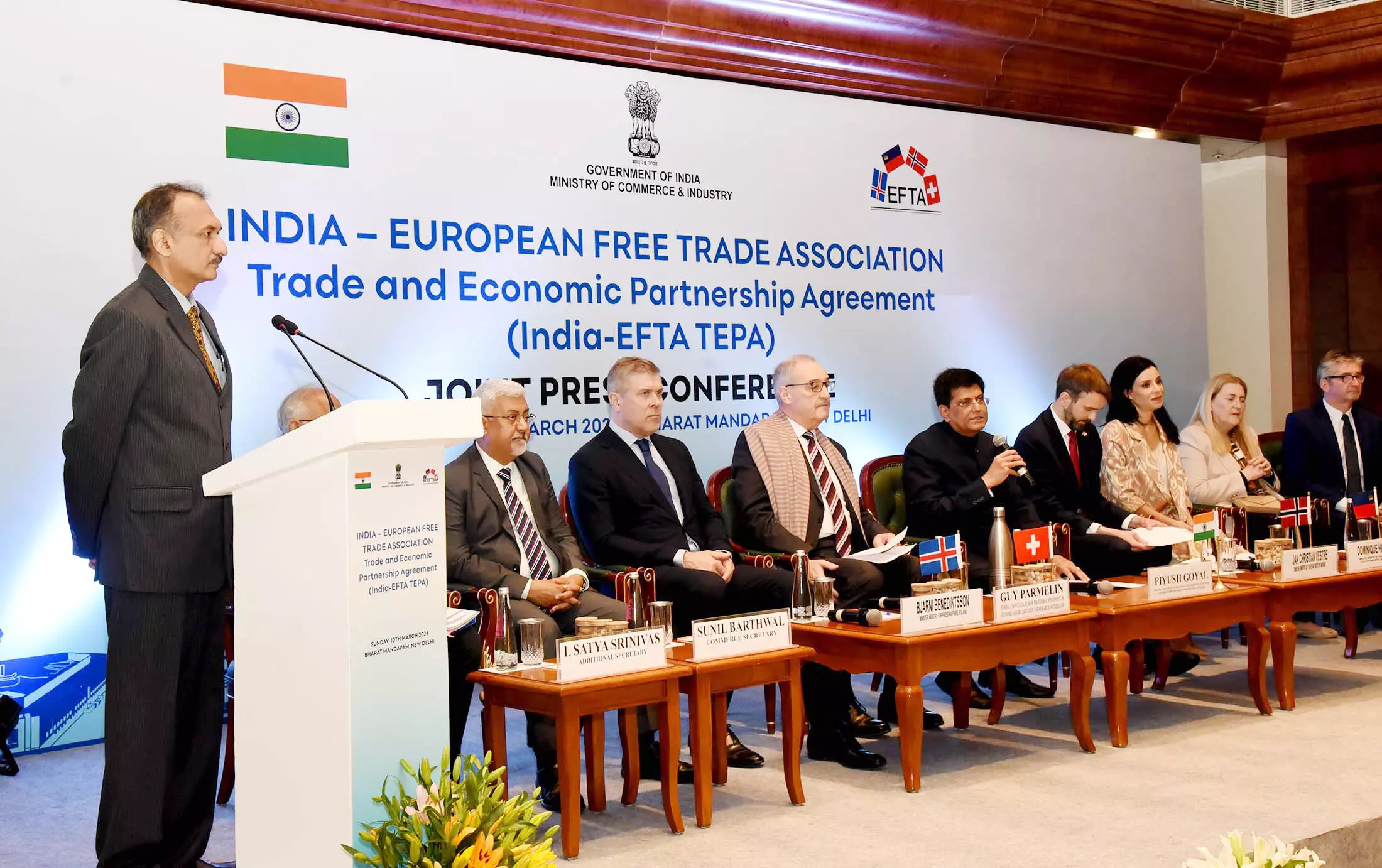Sujit Nair's TEPA analysis: IPR, Make in India, and Technology transfer provisions
Detailed breakdown of IPR, the benefits and provisions in TEPA for India and EFTA countries
image for illustrative purpose

Hyderabad: India inked a modern and ambitious Trade and Economic Partnership Agreement (TEPA) with the European Free Trade Association (EFTA), marking a historic milestone in international trade relations. This groundbreaking agreement is the first Free Trade Agreement (FTA) India has signed with four developed nations within the European economic bloc.
For the first time in the history of FTAs, a binding commitment of $100 billion in investment creating 1 million direct jobs over the next 15 years has been secured. The agreement is poised to significantly boost India's 'Make in India' initiative, offering ample opportunities to the country's young and talented workforce. Moreover, TEPA is set to open a window of opportunity for Indian exporters to access vast European and global markets.
In July 2023, Piyush Goyal Union Minister of Commerce & Industry met the European Free Trade Association (EFTA) delegation, led by the Swiss State Secretary for Economic Affairs, Helene Budliger Artieda, in London. Piyush Goyal reaffirmed that the primary objective of these negotiations was to establish a fair, mutually beneficial, and comprehensive trade deal between India and EFTA. He emphasized the importance of a comprehensive trade deal that addresses India's and EFTA's needs and aspirations, fostering closer economic ties and promoting sustained growth.
In an exclusive discussion with Sujit Nair (SN), a notable figure in Track 1.5 Diplomacy within the India-UK/India-EU corridor Bizz Buzz (BB) tries to understand the various aspects of the agreement. In the second part of the series, Sujit details the provisions and clauses mentioned in the agreement between India and EFTA on Intellectual Property Rights (IPR), and the repercussions of the Trade and Economic Partnership Agreement (TEPA) on the Make in India initiatives.
BB: The TEPA includes provisions for Intellectual Property Rights (IPR) aligning with TRIPS standards. How do these IPR commitments benefit both India and the EFTA countries?
SN: The agreement between India and EFTA includes provisions and clauses for Intellectual Property Rights (IPR) which align with the Trade-Related Aspects of Intellectual Property Rights (TRIPS) standards which can mutually benefit both regions. The protection of intellectual property promotes trade and investment, provides access to markets, encourages technological advancement, and contributes to economic growth.
BB: Some critics have expressed concerns about the impact of the India-EFTA FTA on India's 'Make in India' initiative. How does the agreement address these concerns and support domestic manufacturing?
One major concern has been the potential flood of foreign goods in the Indian market, affecting domestic manufacturers. Notably, the agreement allows Indian manufacturers to simultaneously export to EFTA markets. Another significant concern pertains to job creation and whether technology transfer will genuinely benefit India. Collaborative joint ventures will not only generate employment but also enhance India’s technological capabilities, thereby boosting productivity.
Sustainable development and tariff rationalization have also been points of contention. However, the agreement ensures a balanced approach. Both India and EFTA gain in specific sectors, levelling the playing field while diversifying imports and reducing dependency on a single source. This Free Trade Agreement (FTA) has meticulously weighed the pros and cons, addressing all possible concerns, and aims to showcase India as a competitive global player while creating a win-win situation for both partners.

